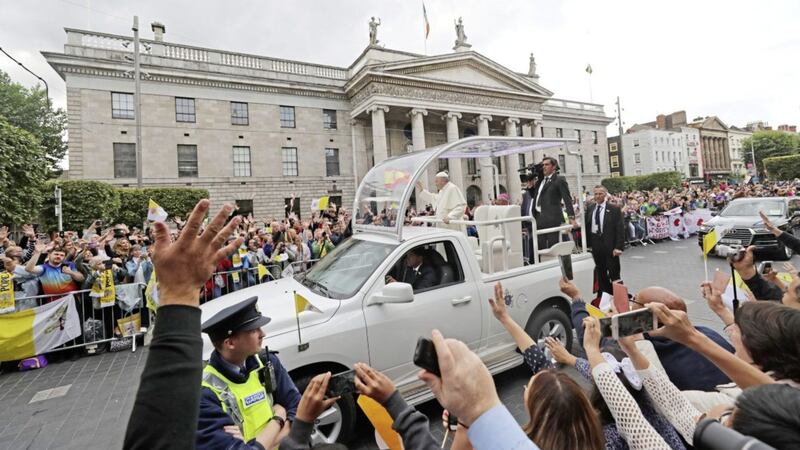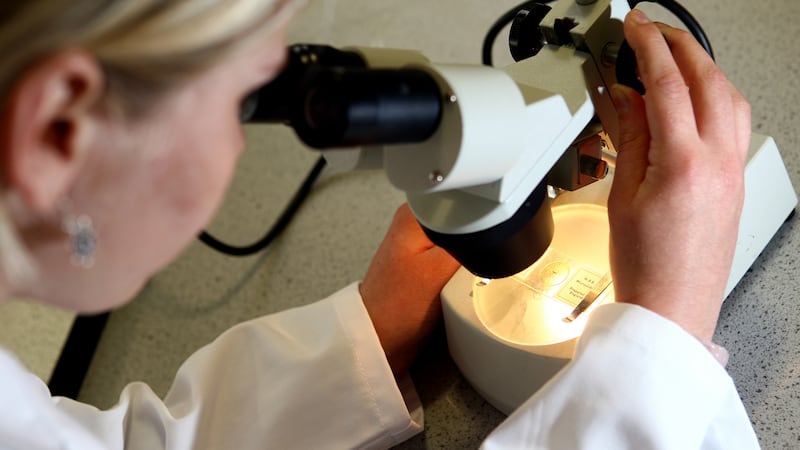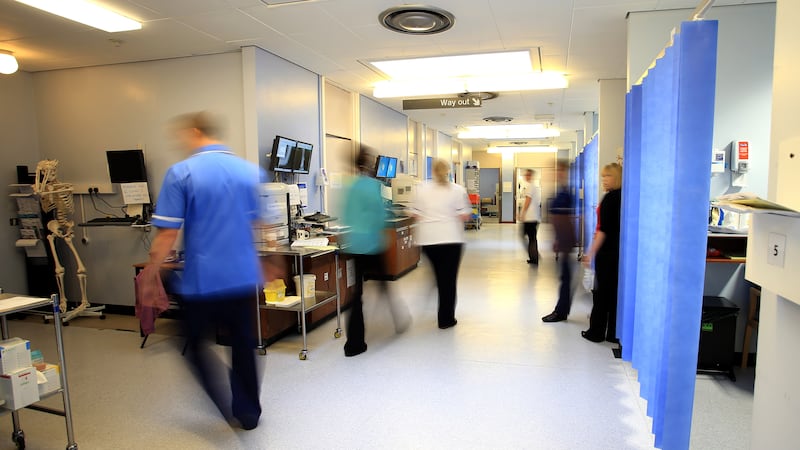WHATEVER happened during Pope Francis's visit to Ireland, it was always destined to be measured against John Paul II's celebrated 1979 trip, with the subtext that it would inevitably be a negative comparison.
Following a deeply venerated figure like John Paul II is nigh-on impossible; just ask any football manager who has succeeded Alex Ferguson at Manchester United.
Millions of people came to see the Polish pope, in a country that was proud of its Catholic ardour.
How could any pope, even one that people warm to as much as Francis, compete with that, in a country that is defiantly no longer 'Catholic Ireland'.
In the years since John Paul II greeted the young people of Ireland and appealed to the men of violence, his pilgrimage has ascended to the level of near-folklore, so embedded is it in Ireland's psyche.
Full coverage of Pope Francis' visit to Ireland
Psyches can change, though, and Ireland's today is almost completely unrecognisable from that of 1979.
Divorce, abortion and same-sex marriage - unthinkable, never mind unspeakable in the era of De Valera and McQuaid - are now stitched into the fabric of Irish life.
There is an argument that this would have happened anyway, as it has in other Western societies. But it is difficult to think it could have come to pass so quickly, so completely, without the rapid collapse in support for the Catholic Church.
The decisive factor in that has been the exposure of clerical sex abuse. That too was an unspeakable in 1979; it wasn't unthinkable, though, as the tragic litany of those whose humanity was injured by priests, casual violence in schools, forced adoptions and the Magdalene laundries attests.
John Paul II didn't have to deal with that when he came to Ireland - because he didn't deal with it all, by many accounts - and it has been the grim burden of his successors to attempt to re-establish the Church's broken moral authority.
Francis had to do several things in public during this visit, which was chiefly to attend the World Meeting of Families.
First, he needed to affirm the Catholic faithful, and inspire them to persevere in the face of a prevailing culture which many think is increasingly hostile to their beliefs and practises.
He did well on this, buoyed by the fact the World Meeting of Families was a great success.
The Festival of Families in Croke Park on Saturday night was, even for the more cynical journalists following the Pope in Ireland, an impressive and memorable event.
The sight and sound of Riverdance at full-tilt, heels clacking on and off the stage with almost concussive power, was one thing - many of the foreign press had, it's safe to say, never seen anything like it - but there was also a strong sense of the power of family.
The WMOF reflected an energy and dynamism among the laity that if correctly harnessed could help put a spring in the Church's step when it is under pressure on so many fronts.
No-one in Rome was particularly interested that the north was - again - not on the Pope's itinerary. Many of the people I spoke to around St Peter's Square in the Vatican on the eve of joining the papal trip did not even seem to know what Northern Ireland was.
Still, there is disappointment that Francis did not include it on his itinerary, perhaps instead of giving Knock a second papal visit.
When the Pope did address the north in his remarks in Dublin Castle on Saturday, two of the figures central to the current shambles at Stormont - Sinn Féin's northern leader Michelle O'Neill and DUP leader Arlene Foster - were not present.
It is stretching credibility to imagine that it would have made any difference if the pair - one with a broken leg and the other with a perpetual foot in her mouth - had been there, to hear Francis's "firm hope that the peace process will overcome every remaining obstacle and help give birth to a future of harmony, reconciliation and trust".
Yesterday, he told the 45,000-plus crowd at Knock that his visit to the Marian shrine "allows me to address a warm greeting to the beloved people of Northern Ireland".
It is to the credit of the many northerners who had got up in the middle of the night to make the journey that this mere mention prompted the loudest cheer heard during Pope Francis's Angelus remarks; the less generous may have been forgiven for thinking that if we are that beloved, why haven't you come to see us?
"I ask Our Lady to sustain all the members of the Irish family to persevere, as brothers and sisters, in the work of reconciliation," continued the Pope, in an echo of his Dublin Castle comments.
"With gratitude for advance of ecumenism, and the significant growth of friendship and cooperation between the Christian communities, I pray that all Christ's followers will support the continuing efforts to advance the peace process and to build a harmonious and just society for today's children."
These are praiseworthy if routine sentiments, but Northern Ireland is the 'what if?' of this visit. Could that work of building harmony, reconciliation and trust been advanced if the Pope had actually come to north? Could it have given the politicians a kick in the right direction? We shall never know.
Missing out Northern Ireland again also jars with Francis's consistent appeal for the Catholic Church to attend to those on the periphery; Northern Ireland, locked in a sort of Brexit no-man's-land, is starting to look like it could be the periphery of the periphery.
A Northern Ireland visit would also have given this visit a trove of positive headlines and images to flash across the world - the Pope in Armagh, or Belfast - which would have challenged the more negative buzz that has surrounded this visit.
That, of course, focused on the scandal of clerical sex abuse. Given the depravity of the Irish context, this was always going to be a dominant theme of the visit. How could it be otherwise?
The Church's inability - or is it unwillingness in some quarters? - to properly heal the wounds will continue to cripple it.
For example, earlier this year Dr John McAreavey resigned as Bishop of Dromore because of his failings in dealing with paedophile priest Fr Malachy Finegan.
Beyond Ireland there is a slew of other disasters, particularly in the United States. Yesterday morning, an explosive letter from a former papal nuncio to the US, Archbishop Carlo Maria Vigano, was made public.
One of his claims centres on Cardinal Theodore McCarrick, whose resignation the Pope accepted last month.
Archbishop Vigano says he had told the Pope about the sex abuse allegations against Cardinal Theodore McCarrick five years ago.
He has not yet produced any evidence to back up his claims, but the implication is that Francis kept an abuser in a senior role when he knew of the allegations, with Archbishop Vigano calling on the Pope to resign.
How the Vigano affair plays out will be seen in coming days and weeks, but it is a further example of the relentless pressure the Pope is under on the abuse issue from within in the Church and without.
The Pope did not address Archbishop Vigano's claims in his public remarks yesterday, but he did address abuse in general.
To supportive cheers from the crowd at Knock, he spoke of how he had prayed for "all the victims of abuse of whatever kind committed by members of the Church in Ireland".
"None of us can fail to be moved by the stories of young people who suffered abuse, were robbed of their innocence and left scarred by painful memories.
"This open wound challenges us to be firm and decisive in the pursuit of truth and justice. I beg the Lord's forgiveness for these sins and for the scandal and betrayal felt by so many others in God's family."
These were strong and sincere words, though they would ring clearer if accompanied by some decisive action - ordering the release of all Vatican and diocesan documents on abuse allegations might be a start, for example.
If there is a sense that Francis has lost a grip of the crisis in the Vatican, he was on much surer ground when he met with survivors of abuse on Saturday evening.
He spent 90 minutes with them, listening to their stories; he told them that clerical sex abuse was 'filth', 'like something you would find in the toilet'.
Among the group of eight was Belfast priest Fr Patrick McCafferty, who described the encounter as "excellent in every way".
If only every engagement that the Church had on sexual abuse could be so described. Making that a reality is the greatest challenge facing not only Pope Francis, but the Catholic Church.
Yes, the crowds were smaller than in 1979, as emphasised by aerial footage of the Phoenix Park Mass.
That wasn't all to do with soft kiss of the Irish rain, either. The weather was worse in Mayo, but that didn't seem to deter anyone. It would also be too simplistic to say that a rural-urban split is at play - there may be, but faith does not start or stop at the M50.
Perhaps the truth is that the days of million-plus Mass attendances are over.
The Church is going through a period of change as radical as that which the Irish state itself has undergone. Where that journey takes it will be fascinating, and integral to the story of this dynamic island.
That future will be shaped by Ireland's young, and there was an echo of John Paul II when Francis addressed the "children of Ireland" at Knock.
No-one can predict what they will be doing in 39 years' time. But we can be sure that Ireland will have continued to change. The Catholic Church, as the Christian faith has done for more than 2,000 years, will also have endured.
And as those children grow to have families of their own, they will look back on Francis's visit in 2018 as the moment when the 'new Ireland' showed it could respectfully rub shoulders with the 'old Ireland'.



